Indigenous Governance Database
legal infrastructure
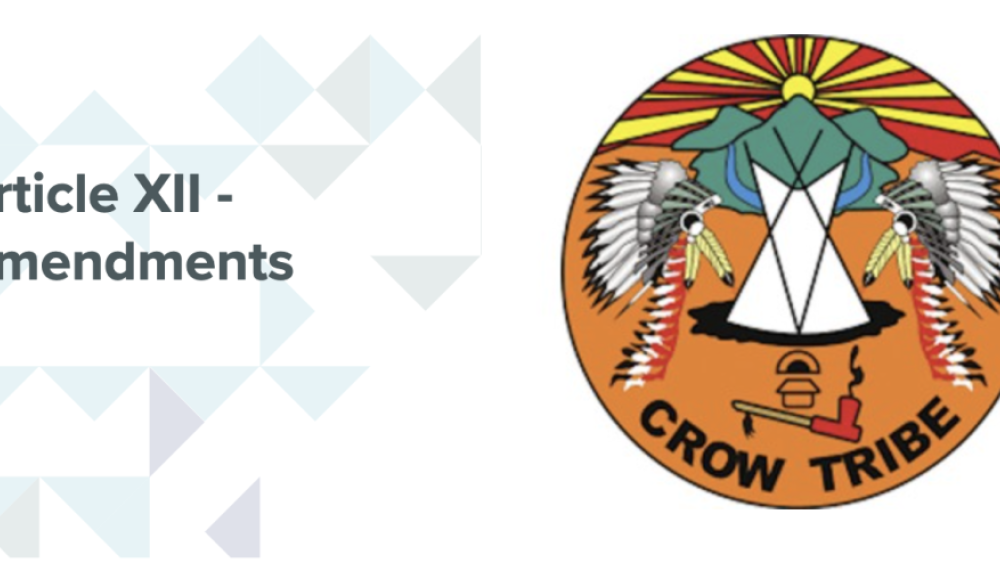
Crow Tribe: Amendments Excerpt
ARTICLE XII - AMENDMENTS This Constitution may be amended by a two-thirds (2/3) vote ofthe Crow Tribal General Council provided that at least thirty percent (30%) of the Crow Tribal General Council vote in an election called for the purpose of amending the Constitution. The process to propose…
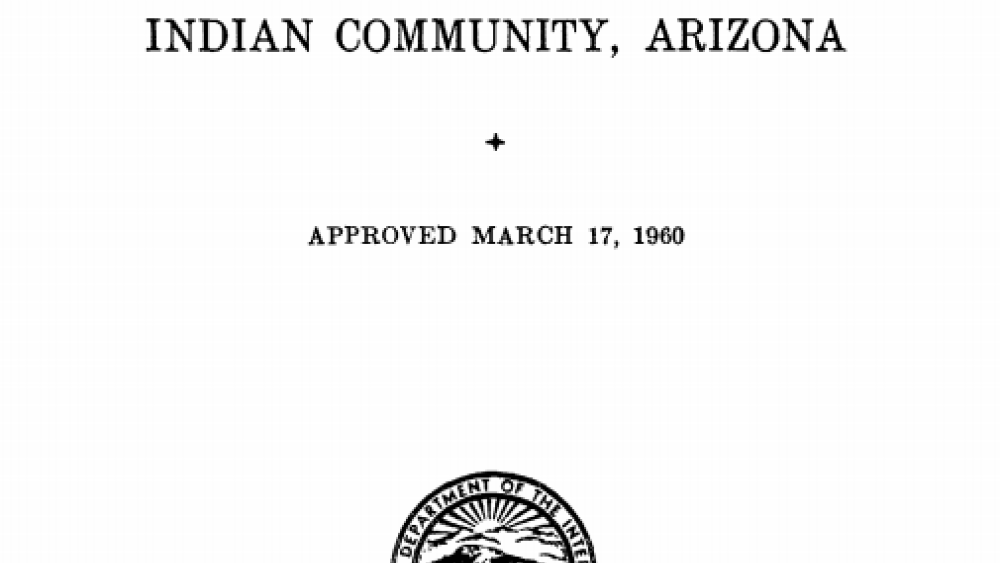
Gila River Indian Community: Legislative Functions Excerpt
ARTICLE VI–QUALIFICATIONS OF OFFICERS Section 1. No person shall be elected or hold office as Governor, Lieutenant Governor, Chief Judge, Associate Judges, or Councilmen unless he (1) is a member of the Community; (2) has reached the age of twenty-five (25) years; (3) has been living in the…
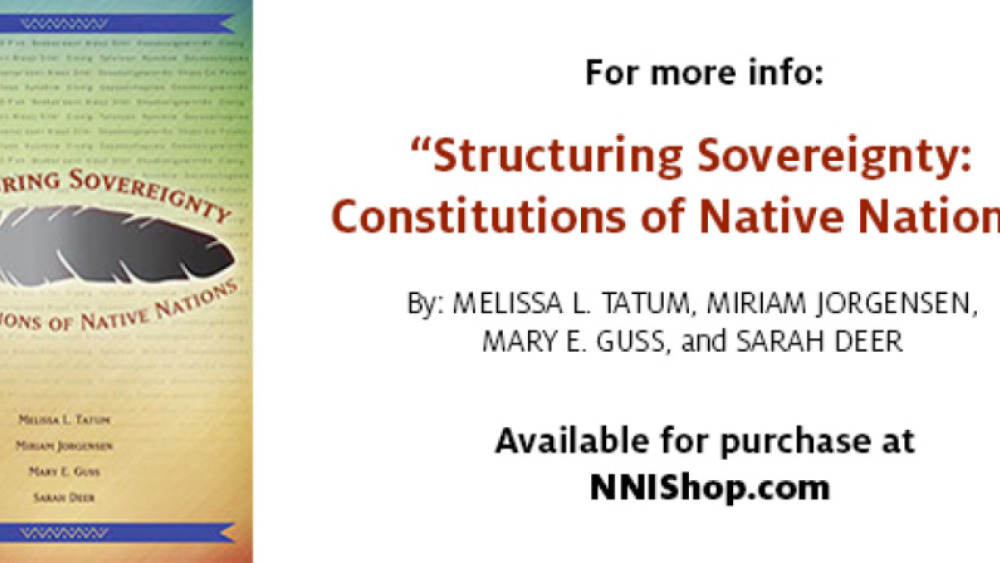
Confederated Salish and Kootenai Tribes, Constitutional Bylaws: Legislative Functions Excerpt
Article II - Ordinances and ResolutionsSection 1. All final decisions of the Council on matters of general and permanent interest to the members of the Confederated Tribes shall be embodied in ordinances. Such ordinances shall be published from time to time for the information and education of the…
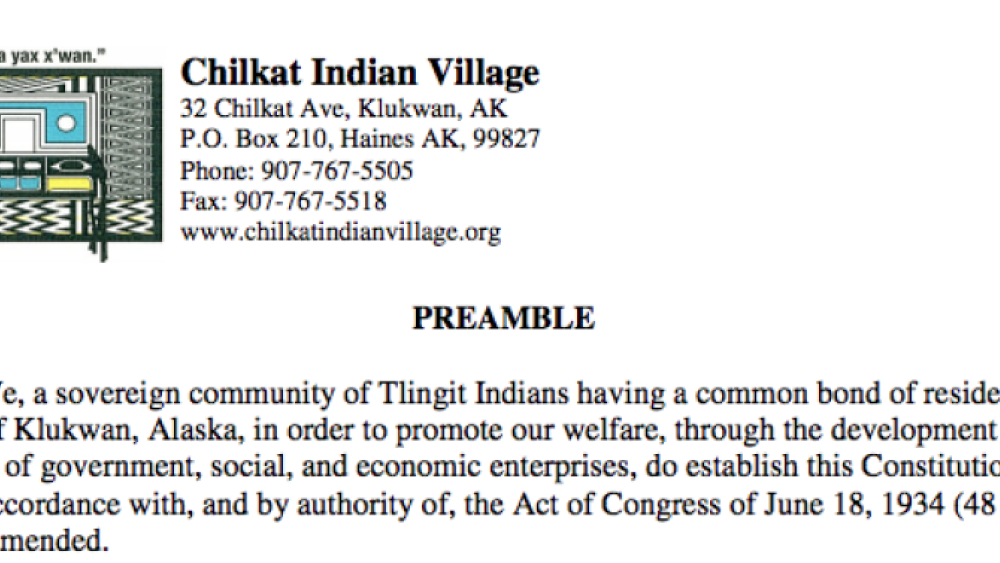
Chilkat Indian Village: Legislative Functions Excerpt
ARTICLE V — POWERS OF THE VILLAGESection 1. The Council shall have the power: (n) To adjudicate matters of a civil and criminal nature, arising within the Tribe’s jurisdiction and to establish tribal courts if deemed necessary for that purpose. (o) To enact ordinances and take any other action…
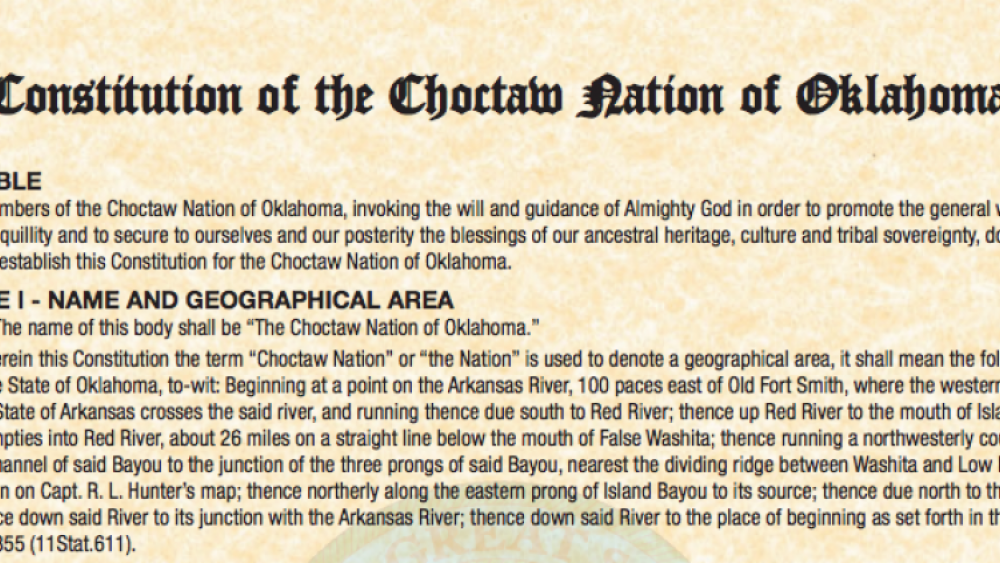
Choctaw Nation of Oklahoma: Judiciary Functions/Dispute Resolution Excerpt
ARTICLE XII - JUDICIAL DEPARTMENTSection 1. The judicial authority of the Choctaw Nation shall be vested in a Tribal Court which shall consist of three (3)-member Court appointed by the Chief with the advice and consent of the Tribal Council. One (1) such member,the presiding judge, shall be a…
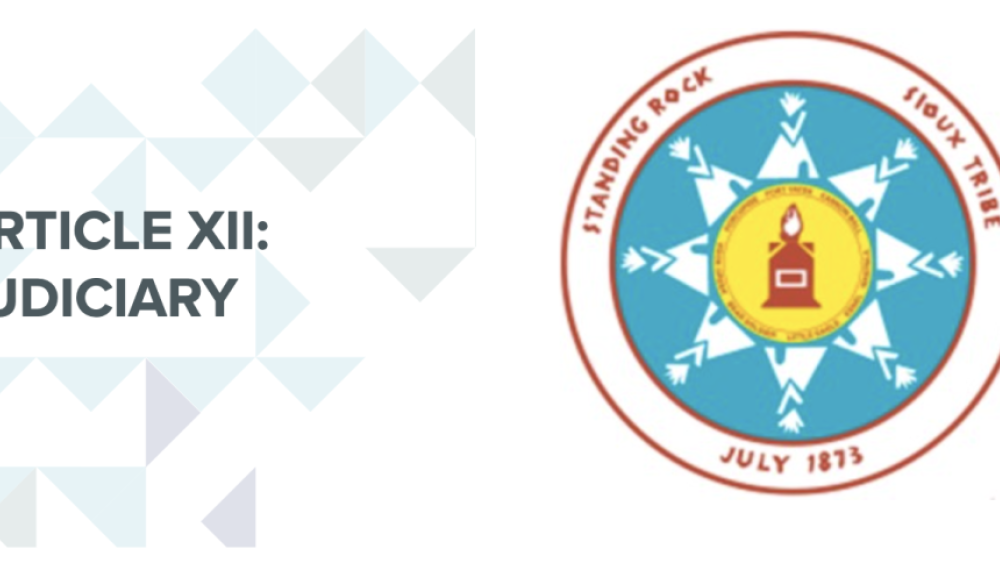
Standing Rock Sioux Tribe: Judiciary Functions/Dispute Resolution Excerpt
ARTICLE XII: JUDICIARY The judicial power of the Tribe shall be vested in one Supreme Court and one Tribal Court. The Judges of both the Supreme Court and the Tribal Court shall initially be appointed by a two-thirds majority vote of the Tribal Council to serve an initial term of office ending on…
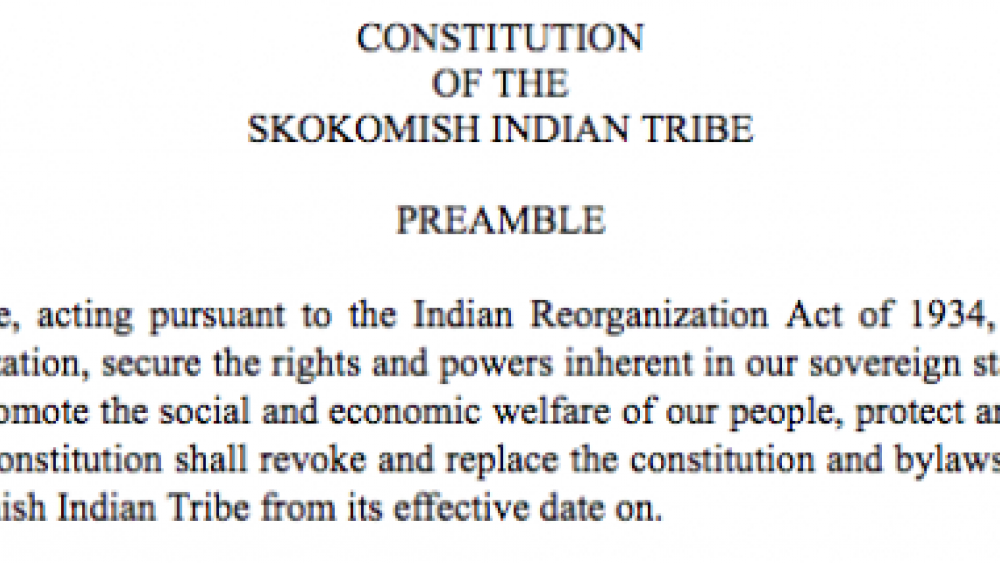
Skokomish Indian Tribe: Initiative & Referendum Excerpt
ARTICLE VIII - INITIATIVE Section 1. Right of Initiative. Voters of the Skokomish tribe shall have the right to cause a vote of the General Council on any legislation proposed by the voters and on any proposed or enacted ordinance or resolution of the Tribal Council. No later than thirty (30) days…
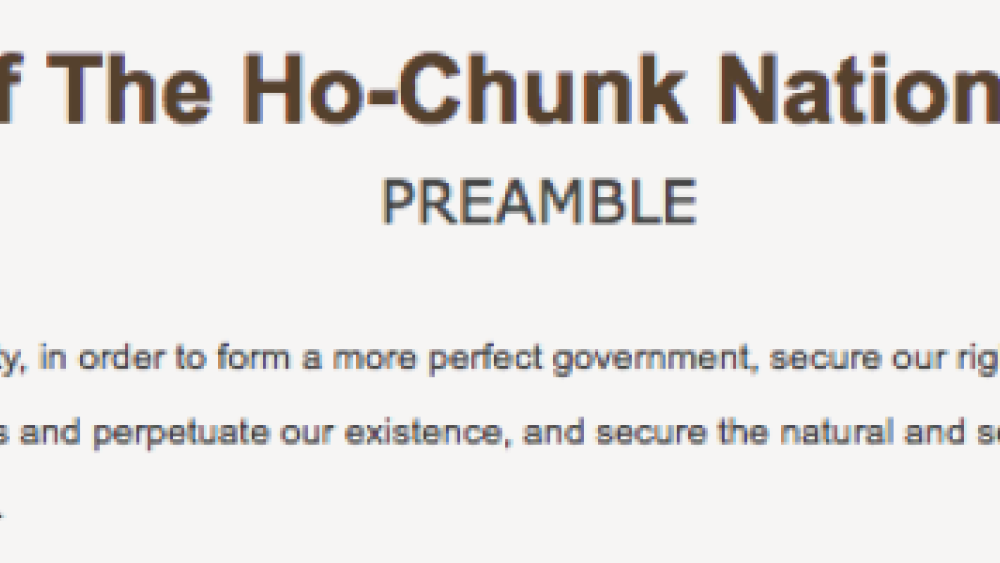
Ho-Chunk Nation: Governmental Structure Excerpt
ARTICLE III - ORGANIZATION OF THE GOVERNMENTSection 1. Sovereignty. The Ho-Chunk Nation possesses inherent sovereign powers by virtue of self-government and democracy.Section 2. Branches of Government. The government of the Ho-Chunk Nation shall be composed of four (4) branches: General Council,…
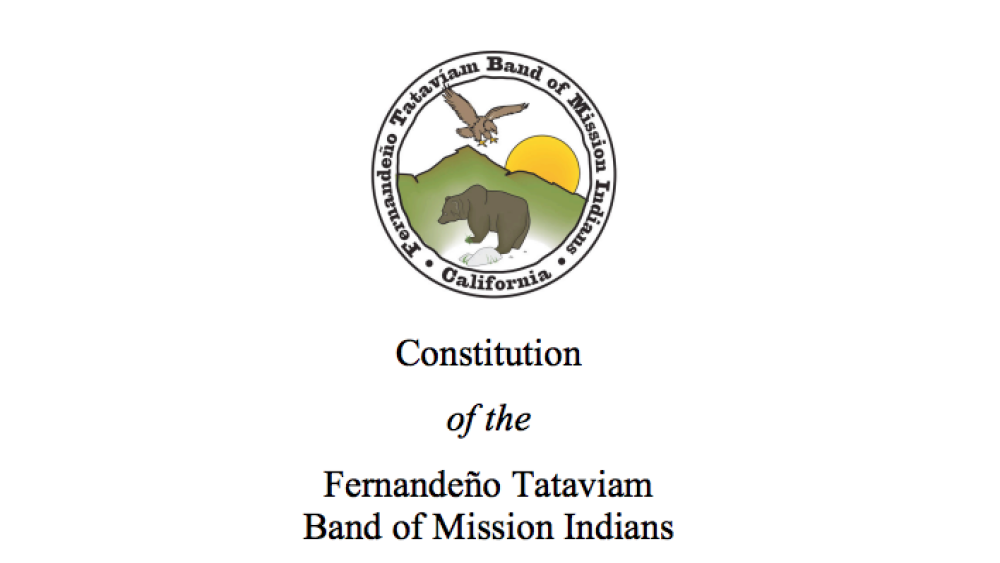
Fernandeño Tataviam Band of Mission Indians: Citizenship Excerpt
Article 7. Rights and Responsibilities of CitizensSection 1. All citizens of the Tribe are entitled to equal respect without regard to gender, age, or religion. All citizens shall enjoy equal opportunities to participate in the economic resources and activities of the Tribe, and no citizen shall be…
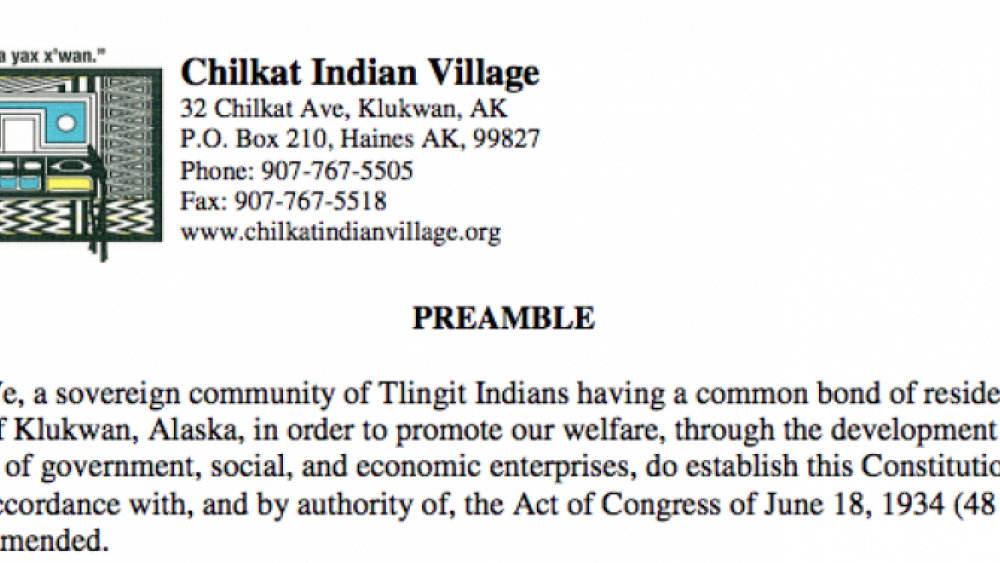
Chilkat Indian Village: Citizenship Excerpt
ARTICLE III — MEMBERSHIPSection 1. Defined: The membership of the Chilkat Indian Village shall consist of the following: (a) Original members.- All persons whose names appear on the 1940 census roll, prepared in accordance with the Instructions of the Secretary of the Interior for Organization in…
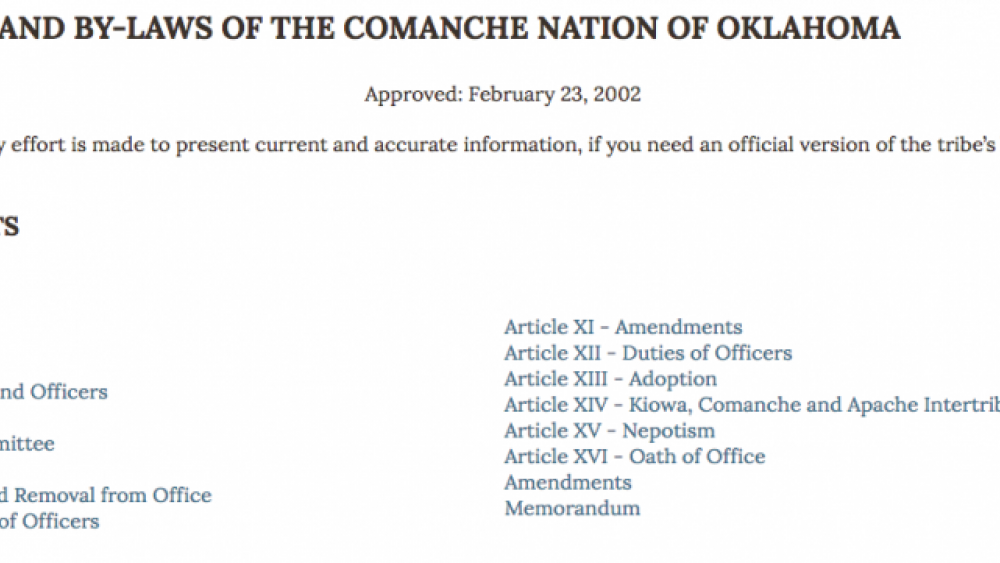
Comanche Nation: Citizenship Excerpt
ARTICLE III - MEMBERSHIPSection 1. The membership of the Comanche Nation shall consist of the following: (a) All persons, who received an allotment of land as members of the Comanche Nation under the Act of June 6, 1900 (31 Stat. 672), and subsequent Acts, shall be included as full blood members of…
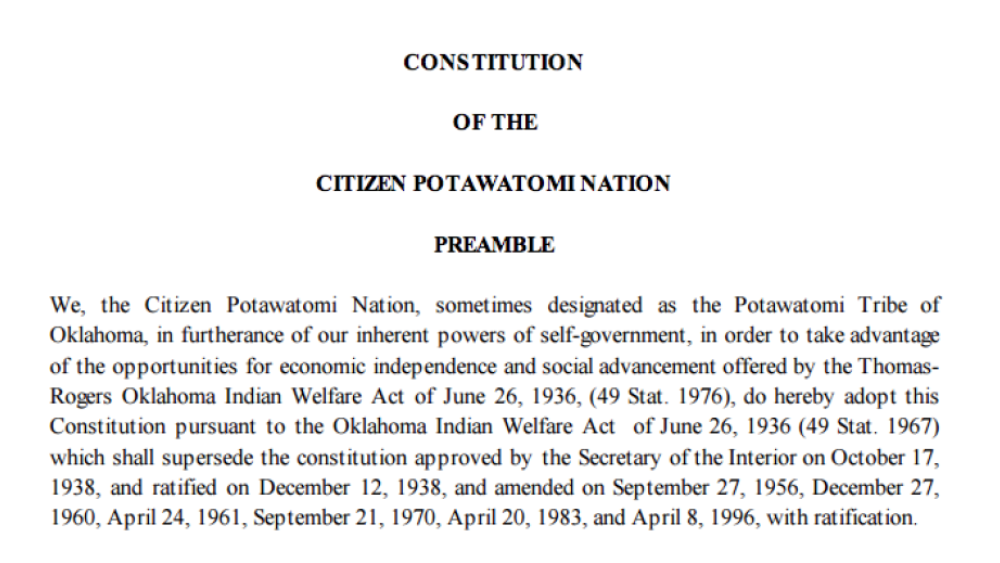
Citizen Potawatomi Nation: Citizenship Excerpt
ARTICLE 3 — MEMBERSHIP OF TRIBESection 1. The membership of the Citizen Potawatomi Nation shall consist of the following persons: (a) All persons of Indian blood who were bona fide members of the Citizen Potawatomi Nation and who were enrolled or were entitled to be enrolled on the official census…
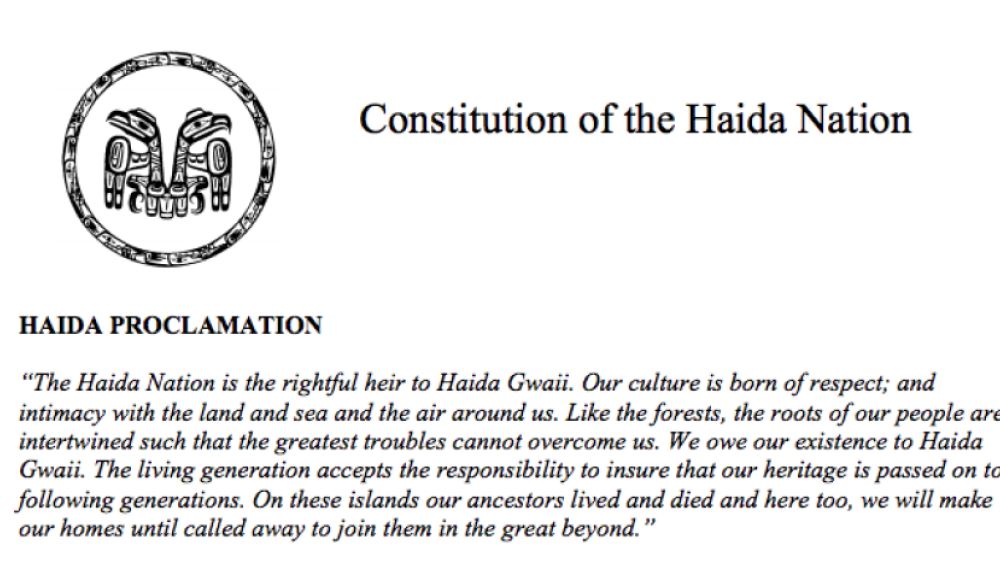
Haida Nation: Preamble Excerpt
HAIDA PROCLAMATION The Haida Nation is the rightful heir to Haida Gwaii. Our culture is born of respect; and intimacy with the land and sea and the air around us. Like the forests, the roots of our people are intertwined such that the greatest troubles cannot overcome us. We owe our existence to…
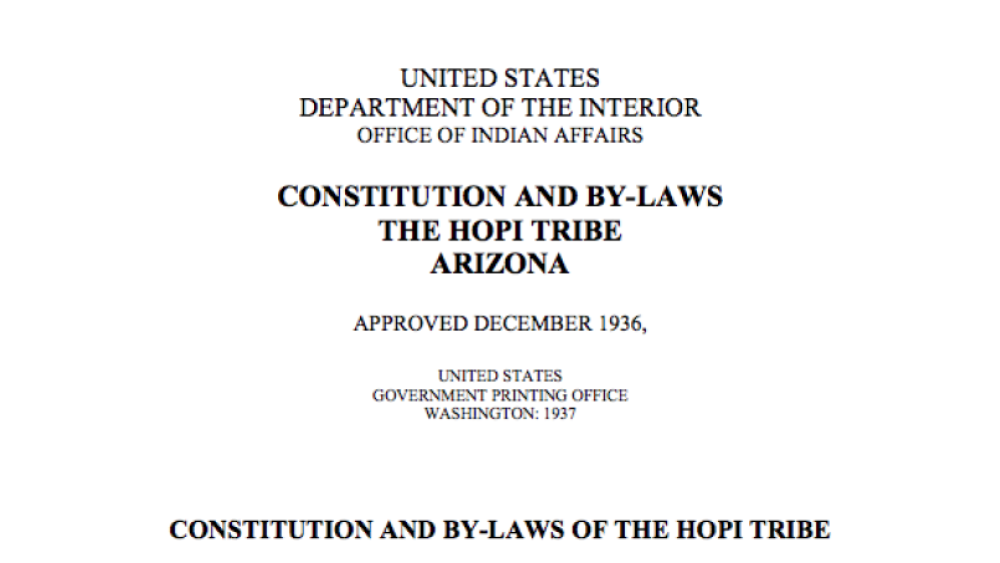
Hopi Tribe: Preamble Excerpt
Preamble: This Constitution, to be known as the Constitution and By-laws of the Hopi Tribe, is adopted by the self-governing Hopi and Tewa Villages of Arizona to provide a way of working together for peace and agreement between the villages, and of preserving the good things of Hopi life, and to…
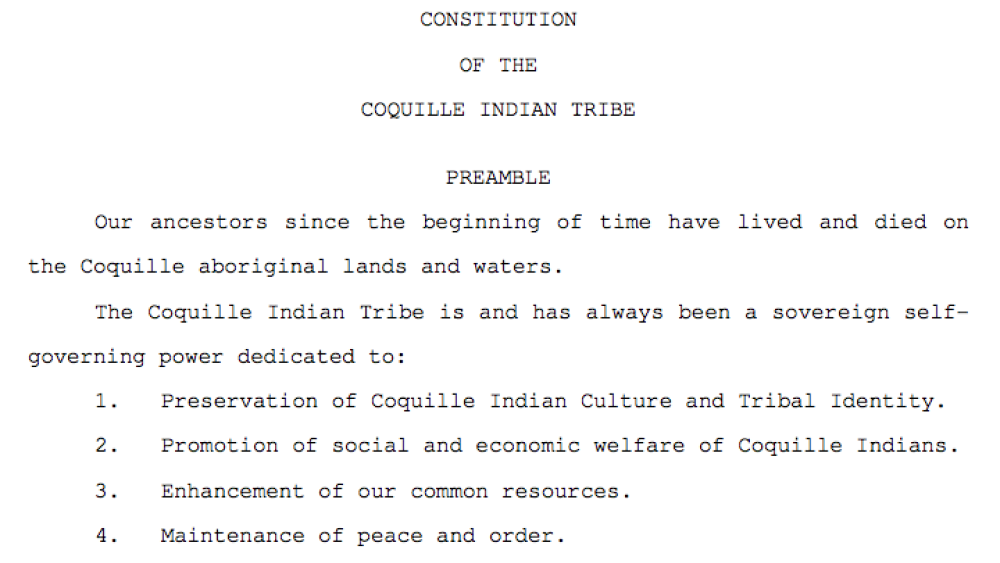
Coquille Indian Tribe: Preamble Excerpt
Preamble: Our ancestors since the beginning of time have lived and died on the Coquille aboriginal lands and waters. The Coquille Indian Tribe is and has always been a sovereign selfgoverning power dedicated to: 1. Preservation of Coquille Indian Culture and Tribal Identity. 2. Promotion of…
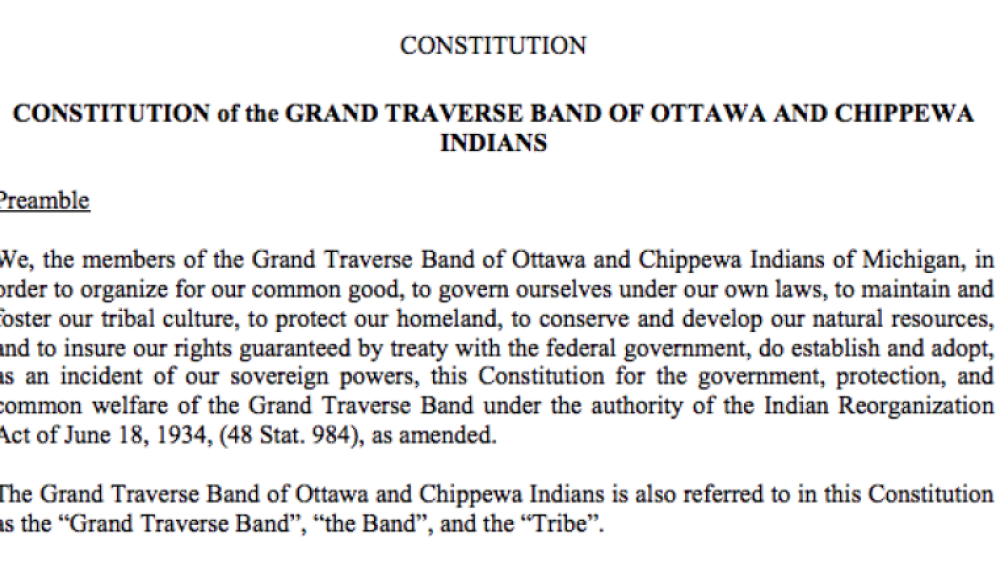
Grand Traverse Band of Ottawa and Chippewa Indians: Preamble Excerpt
Preamble: We, the members of the Grand Traverse Band of Ottawa and Chippewa Indians of Michigan, in order to organize for our common good, to govern ourselves under our own laws, to maintain and foster our tribal culture, to protect our homeland, to conserve and develop our natural resources, and…

John McCoy: The Tulalip Tribes: Building and Exercising the Rule of Law for Economic Growth
Former Manager of Quil Ceda Village John McCoy discusses how the Tulalip Tribes have systematically strengthened their governance capacity and rule of law in order to foster economic diversification and growth. He also stresses the importance of Native nations building relationships with other…
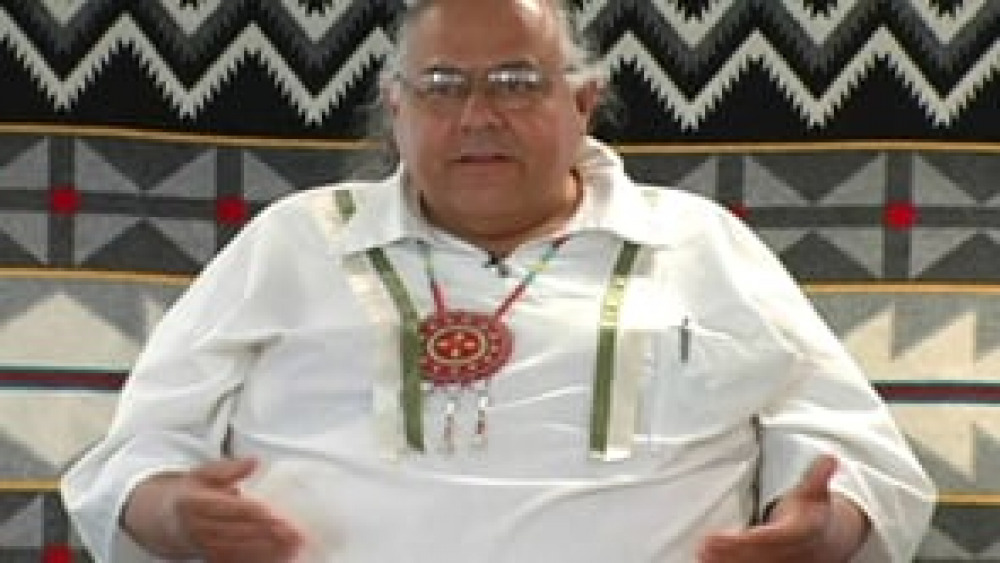
Frank Ettawageshik: Exercising Sovereignty: The Little Traverse Bay Bands of Odawa Indians
Frank Ettawageshik, former chairman of the Little Traverse Bay Bands of Odawa Indians (LTBBO), discusses how LTBBO has systematically built its legal infrastructure in order to fully and capably exercise the nation's sovereignty and achieve its nation-building goals. He discusses some of the…

From the Rebuilding Native Nations Course Series: "Rules are More Important than Resources to Enterprise Success"
Professor Joseph Kalt discusses the importance of sound laws, codes, policies and other rules to the building of diversified, sustainable economies in Indian Country and everywhere else around the world.
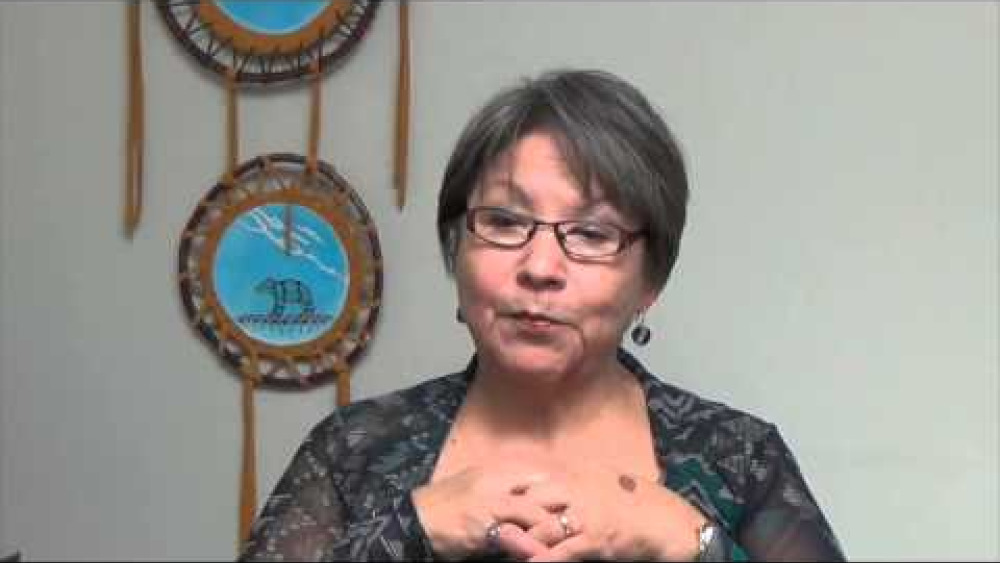
Carol Croxon: Nipissing First Nation's Gichi-Naaknigewin
Nipissing First Nation community member Carol Croxon describes what the Nipissing Gichi-Naaknigewin (Constitution) means to her in this short video explaining the document to the Nipissing people.
